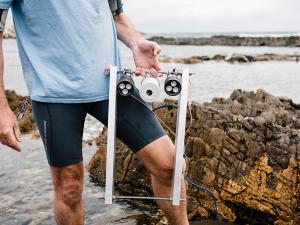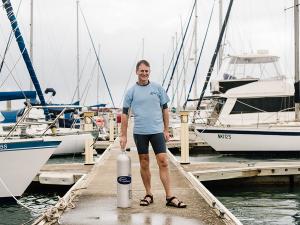Diving into problems of the deep
Meet the technology start-up guru channeling his expertise into saving our oceans.
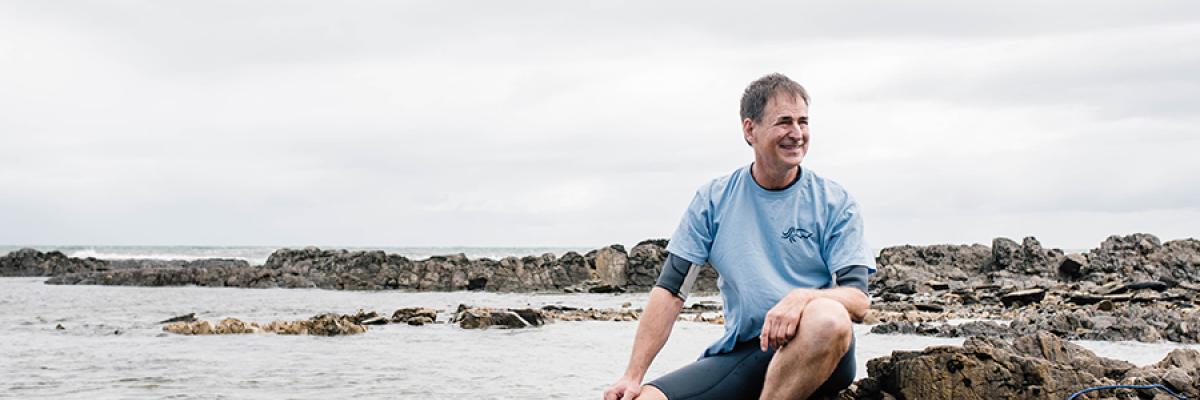
It was a love of the Japanese language that led alumnus Alan Noble to Japan in the 80s, a move that sparked a lifelong interest in machine learning, artificial intelligence and technology start-ups.
“As I spoke Japanese, I fell into working for a translation company that was paying people to do translations from Japanese to English, that’s how people did it back then,” Alan said.
“The owner of that business got wind of the fact I was an engineer, and figured that being an engineer I could probably design something to automate this work.
“Of course at the time, I had no idea how to automate translation, but it kind of planted the seed that maybe we could use machines one day in the future to do what is today called machine translation.”
Fast-forward thirty years and the University of Adelaide engineering graduate and Adjunct Professor has amassed an impressive career in harnessing technology to solve problems.
Highlights include: seven technology start-up companies including two not-for-profits, in Australia and overseas, 11 years at Google as engineering director, time as an advisor to the Chief Scientist of Australia and five years on the board of the South Australian Museum.
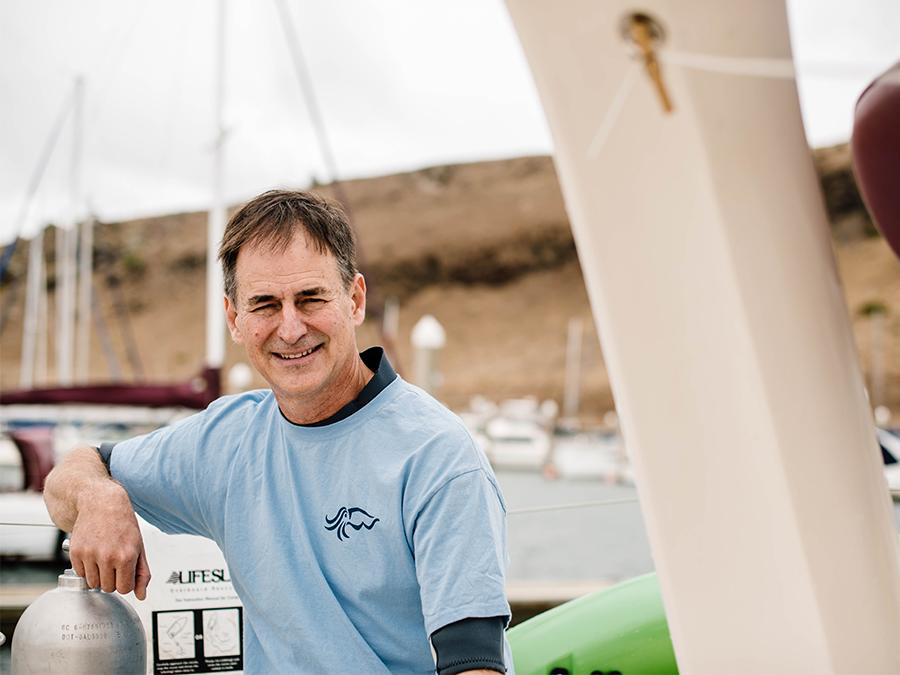
Alan is now channelling his expertise into solving problems of a different kind. AusOcean, his latest start-up, borne out of his passion for and interest in the state of our oceans, is a not-for-profit company solving technical problems relating to marine habitat monitoring and restoration.
“Our mission is to use technology to help our oceans. Our oceans are in trouble. We are really putting them and the sea creatures under enormous strain right now,” he said.
“So it’s a big objective. I like the fact that it’s big, it’s hairy and it’s audacious. It’s good to have some big missions.”
According to Alan, a major reason why many ocean problems have not been solved already lies in the cost and stop-start nature of research using traditional methods of collecting information.
Historically, to conduct ocean monitoring you needed boats, divers and all sorts of equipment to retrieve ocean information for later analysis.
“It’s quite expensive to do that, but it’s not just the expense, the process is fragmented – you have a little bit of knowledge at one point in time and then gaps,” Alan said.
“It dawned on me early on, what if we could build a little low-cost platform that would enable us to undertake continuous monitoring
and provide a holistic, non-fragmented view of what’s happening on and in the water,” he said.
This drove the development AusOcean’s sea-surface platform, a low-cost floating device known as the rig, which is fitted with solar panels and batteries to power sensors for monitoring ocean activity, including temperature sensors, audio sensors and low-cost cameras.
“The camera is actually a super sensor, and you can do a lot of things in software once you have video images,” Alan said.
“In the case of a coral reef, for example, you could analyse polyp [tiny, soft-bodied organisms that begin coral reefs] movements and start to determine, through ocean temperature, when they are getting stressed.
“But the other thing a camera does – which is nothing to do with science but everything to do with engagement – is provide a window for the world to see what is going on.”
Our mission is to use technology to help our oceans. Our oceans are in trouble. We are really putting them and the sea creatures under enormous strain right now.Alan Noble
Currently, the majority of AusOcean projects involve the use of sea-surface platform and sensors to monitor interesting marine hotspots in South Australia.
Projects include extensive marine life surveys and monitoring of dolphin and porpoise activity at Kangaroo Island's Smith Bay, in partnership with Kangaroo Island/Victor Harbour Dolphin Watch; and the monitoring of seagrass health and water quality in the Barker inlet, north of Port Adelaide, in partnership with the Estuary Care Foundation.
AusOcean is also working on projects with the University of Adelaide. In partnership with the University and The Nature Conservancy (TNC) Australia, the company is designing and building an underwater sensor network to monitor Windara Reef, a shellfish reef restoration project on Yorke Peninsula, South Australia.
A big believer in involving students and interns in start-ups, Alan sees them as an invaluable resource on AusOcean projects.
“I’ve always been a big fan of students in all of my start-ups, from the tiniest start-up to the biggest multinational.
“If you give interns interesting problems and enough guidance, they do amazing things,” he said.
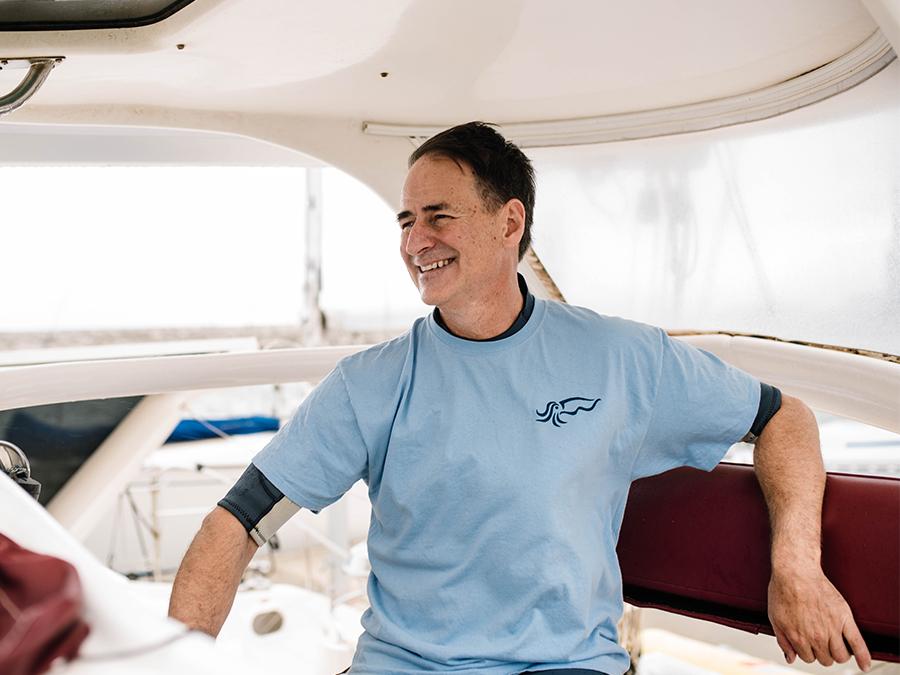
University of Adelaide alumna and marine biologist Catherine Larkin is one such intern, working with AusOcean on the shellfish reef restoration project.
“What I love about interning with AusOcean is the diversity of the work. Working and studying in a multidisciplinary team of both engineers and scientists has exposed me to the more technical side of marine science which is new and exciting and, completely outside my undergraduate realm,” said Catherine.
“Understanding all aspects of marine science, not just the ecological side is so important because technology will continue to be a huge driver in our advances and understandings of the marine environment,” she said.
In the future, there are plans to roll out a program to high schools to get students involved in working with AusOcean technology and running their own conservation projects.
A trial of this program was successfully completed last year at Immanuel College. Workshops are now underway to get more schools involved.
“This would be a game changer. Each school not only building one of our rig platforms, but also engaging with their local community as to what they do with it – do they do some estuary monitoring, river monitoring or coastal monitoring – what’s important in their community?” Alan said.
Although only in its second year of operation, it is fair to say that AusOcean has made an impressive impact on ocean conservation.
“If AusOcean even achieves a fraction of its mission, it will make a big difference," Alan said.
Story by Kelly Brown
Photos by Meaghan Coles


